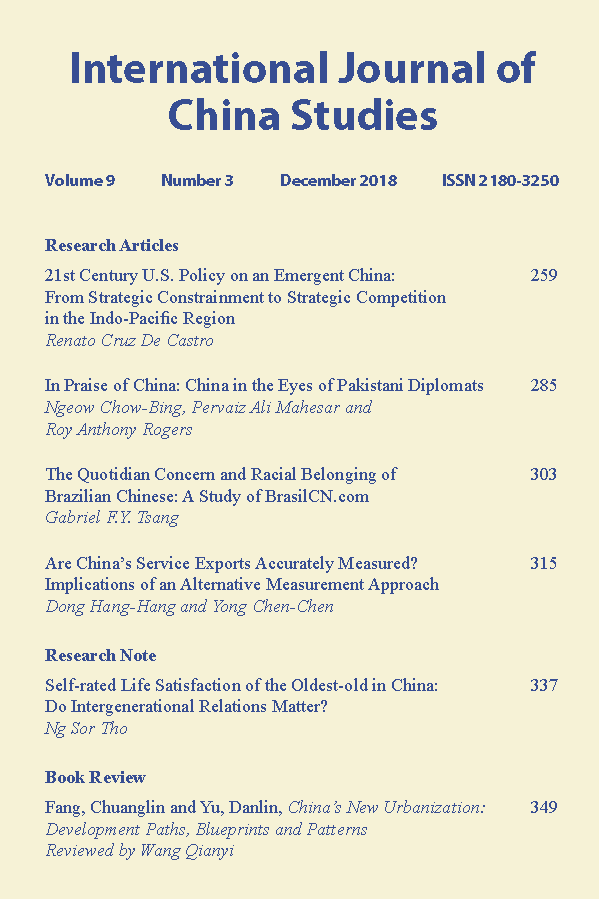21st Century U.S. Policy on an Emergent China: From Strategic Constrainment to Strategic Competition in the Indo-Pacific Region
Keywords:
Indo-Pacific region, Sino-U.S. competition, Trump Administration, China, constrainment, rebalancing policy, Belt and Road Initiative (BRI)Abstract
During his second term as U.S. president, former President Barack Obama made the Asia-Pacific region the focal point of American strategic attention. In November 2011, he announced the U.S. pivot to Asia. His goal was to constrain China from easing out the U.S. as East Asia’s strategic offshore balancer. Contrary to expectations, the 2016 election of Donald Trump, did not spell the end of the strategic rebalancing to Asia. For the Trump Administration, the Asia-Pacific remains a top security priority because of China’s naval expansion, island-building activities, and militarization efforts in the South China Sea threaten not only the freedom of navigation but also the rules-based international order. Consequently, the Trump Administration has directed the U.S. military to proceed with the rebalancing of its forces and their capabilities to the Asia-Pacific region. This decision indicates that, despite its initial opposition to the rebalancing policy to Asia, the current administration believes that on the basis of geography, interests and values, the U.S. is a Pacific power which plays an important role in shaping the future of this dynamic region. This is because the Trump Administration has engaged China in a strategic competition in the Indo-Pacific region. In conclusion, this article warns that the Trump Administration`s policy of engaging China in a strategic competition will set back the hands of time to the U.S.-Sino conflict in the early years of the Cold War, when American and Chinese values, interests and polices were simply adversarial without any convergence. However, this 21st Sino-U.S. competition is different because both countries’ materiel/technological capabilities and global reach are considerably greater
than they were in the 1950s.

